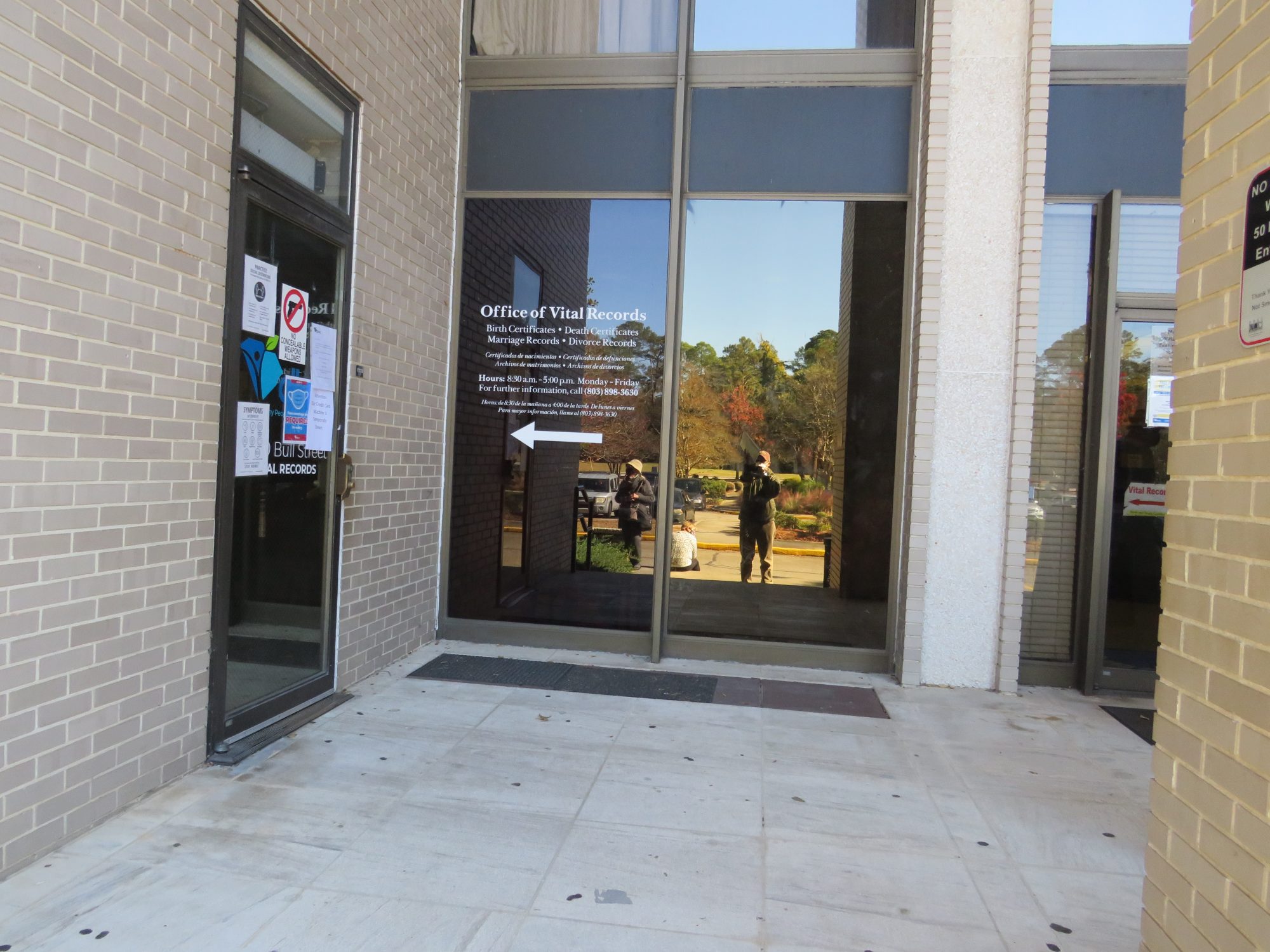- Join us in ‘Finding Mary’
- Finding Mary: The hunt begins
- Finding Mary: The search for relatives
- Finding Mary: How Frederick Douglass inspired my family search
- Finding Mary: Dead ends and revelations
- Finding Mary: A clash over values
- Finding Mary: A trip down slavery’s dark road
- Finding Mary: Faced with frustrations, I vow not to falter
- Finding Mary: A winding road paved by generosity
- Finding Mary: Turning troubling discoveries into positive paths
My Southern journey to discover my mother’s roots was guided by new-found cousin Bobbi Jo* who navigated me through South Carolina, including a stop at the Department of Health and Environmental Control (DHEC), which houses birth records, in order to hopefully find the records of my mother’s biological parents. We also planned a stop to meet my recently-discovered cousin, Margaret.*
Shannon Christmas, a famous genealogist that I met after speaking with my cousin Sofia,* had suggested that I reach out to Margaret. Originally, I saw her last name and thought she was related to my dad’s side of the family in Massachusetts.
Shannon indicated that Margaret appeared to be my second cousin on Ancestry.com, and he thought I should dig further into this connection because he believed Margaret was actually related to me on my mother’s side. He listed the Googe family as the relatives he thought connected us, and was spot on correct.
Although this was the first time meeting Margaret in person, we had spoken various times over the phone. I also assisted Margaret to start building her family tree, and we shared information on relatives and just got to know a little bit about each other. Margaret and her husband, Joseph,* are among the most decent and wonderful people that I have ever met.
Joseph cooked a wonderful dinner, and we sat for hours talking about our family connection, our children, and our siblings — a conversation that lasted well into the night.
Joseph discussed his visits to Northern states and said he was treated differently “because of his southern accent and slow way of speaking.” This sounded no different than the comments made by Bobbi Jo referring to northerners as PFOs (people from off).
We all need to learn not “otherize” each other; but I told them that if my mom had not been adopted and moved from the South, I would probably be speaking with the same sweet accent as them.
The next morning, Margaret and Joseph had prepared a nice package of goodies for us to take back to Charleston, and gave me a wonderful book on the history of South Carolina. “South Carolina A History,” by Professor Walter Edgar and published by the University of South Carolina Press, was written to include “all South Carolinians-rich and poor: male and female; those with roots in Africa and in Europe as well as Native Americans.”
Back to the DHEC: My older sister Frances and my mom had reached out to the agency years ago to obtain an amended birth certificate for my mother.
The certificate listed my mother’s adoptive parents as “Adeline Claire Hunt and Edward J. Hunt.” But DHEC refused to give any further information concerning her birth parents. This was not a surprise: When I became active in the search for my mom’s biological parents in 2020, I called the department and a DHEC employee indicated that they have a record but will not release it to us and will not share who my mother’s birth parents were until 100 years have passed since the adoption.
Bobbi Jo and I showed up at the DHEC, took a ticket from the ticket dispenser, and waited our turn. Once my number was called, the department staff said I needed a copy of my mother’s death certificate or they couldn’t help me. I said I could get my sister on the phone, and she could email that copy right now, but they wouldn’t allow it because they needed a paper copy.
I went to the Crumley Archives at the Lutheran Seminary in nearby Columbia where my grandfather had been a seminary student. A seminary receptionist graciously allowed me to print out the death certificate for my mom.
I returned to DHEC and received a cold reply from the employee who looked over my records. “General information can be shared after 100 years but the original birth-parent names are closed and will not be shared with you unless you sue us and get a court order for that release.”
I left the DHEC discouraged. South Carolina seemed stuck in the past. People with whom I shared my experience offered me insights into South Carolina’s history.
They explained that state policy is aimed at getting children adopted quickly. In no case did the state want a disincentive for a person to adopt a child. The explanations left me feeling like the deck is stacked against people who want to learn about their biological family.
A 2019 law allows for a form to be filled out by the biological parent agreeing to be contacted by their birth child if so requested by that child. This did not resolve my dilemma and my search continued.
*The writer has used a pseudonym for privacy purposes.
NEXT: Bobbi Jo and I visit those who appear to my mom’s relatives who are living in two counties, Allendale and Barnwell Counties, along the Georgia and South Carolina state line.

